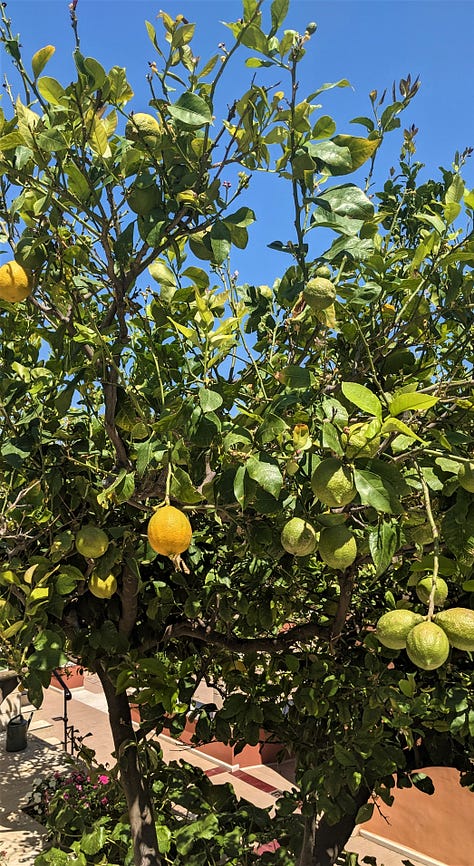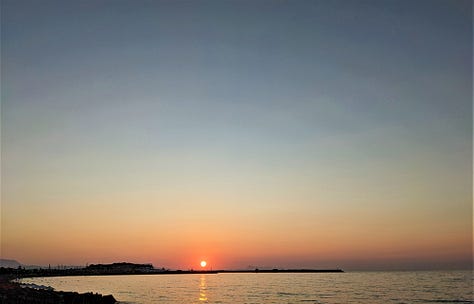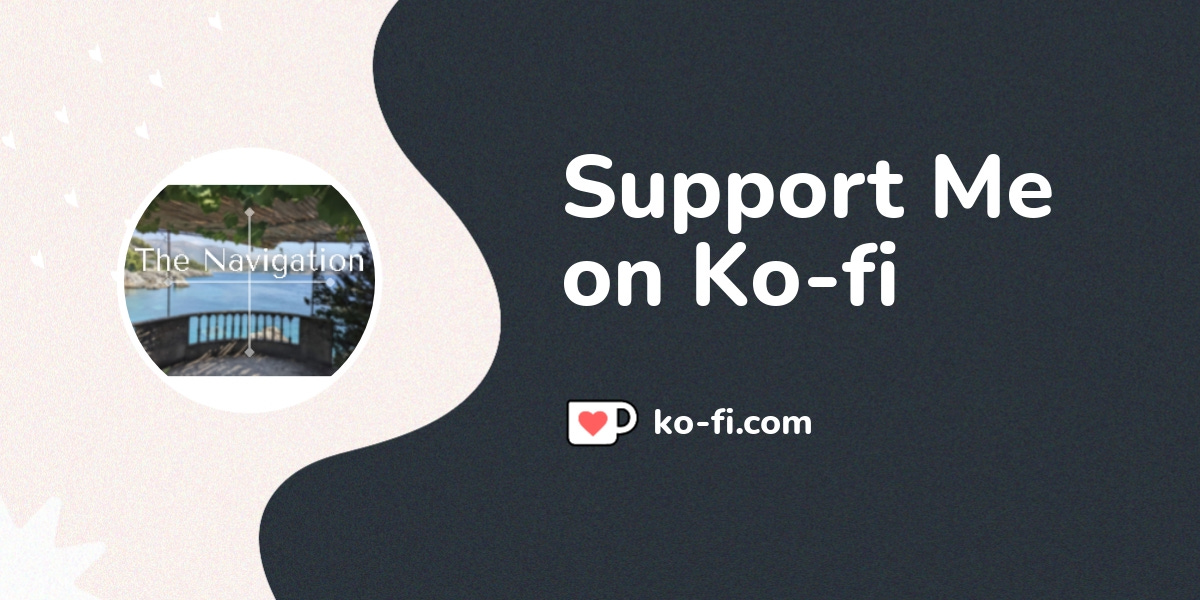Welcome back to the ‘Cultural Compass’ series of The Navigation, where each month I’ll be sharing a round-up of recently consumed culture (usually books, podcasts, articles; sometimes TV, and other miscellaneous items) that’s in some way had an impact on my thinking around navigating life.
Maybe something that’s caused me to reflect on an aspect of my life I want to change, something I want to strive for, a daily routine ‘hack’, or something that I just feel compelled to share, relating to the themes I’m thinking and writing about.
📑 Troublesome Travels
First up this week, a potentially controversial article (not least because this newsletter will be landing in your inbox while I’m on a plane) but one that has stuck with me since I first read earlier in the summer: The Case Against Travel. In this exploratory piece for The New Yorker, philosopher and professor Agnes Callard considers how and why travel turns us into the worst versions of ourselves, when we think we’re at our best.
The arguments presented are not ones of environmentalism, though the question of whether to fly or not to fly is well covered, notoriously by Greta Thunberg, among others. This case against travel is instead highlighting the ills of how we see travel, how we speak of it, what we value (or don’t) about it, and ultimately, why we’re doing it wrong.
I don’t agree with the entirety of Callard’s take; there’s a point in the article around how we love to talk about our travels, but don’t enjoy listening to others doing so. I’m not sure how true that is for you, reader, but I for one relish living vicariously through the travel tales of friends, family, and colleagues. If someone wants to talk me through every inch of a holiday from their morning routine to the multiple bars in which they sampled a night cap, I will very happily sit and listen.
I did however appreciate Callard’s notion of tourism being “marked by its locomotive character.” We often have a checklist of activities or sights to tick off, going about our days eager to move on from one to the next, without fully taking in what we are seeing, or experiencing, and why we wanted to do so in the first place.
So, while my read of this wasn’t necessarily a vindication against travel, it did make me ponder on how we might travel better.
I’d be interested to hear what you take away from this one…



🎧 Timesheet Trials
Next up, another Ten Percent Happier podcast episode, this time with author Laura Vanderkam, known for her work on time management and productivity. Discussing her latest book, Vanderkam explores nine strategies for managing our time, and while some may find such soul-searching a bore, it’s the kind of stuff I lap up.
Some of her advice coincides with that of Cassie Holmes, whose approach I’ve written about previously. One thing that intrigued me from the episode is the idea of a time makeover. Using a timesheet that literally maps out every one of the 168 hours across a week, those keen to get more out of the day are encouraged to keep track of how we typically spend our time, like a food diary or budget plan, before re-evaluating patterns and deciding where changes can be made to feel our 168 hours become more productive. In Holmes’ words, this would lead to “crafting” our time more successfully.
Now, the idea of productivity, I think, is pretty subjective. To you it might mean finding time for 30 minutes of reading every day. For another it might mean getting in the gym at 5am every morning. For me, I think I'm still looking for a way to feel more balanced in my approach to productivity; not feeling too exhausted by work to write or read, or exercise, but also seeing what comes out of taking a step back and analysing time across a week-long span. What could I drop and what could I pick up more of?
I’ve not dived in yet, but I am considering doing so as part of leaning into the ‘back-to-school’ vibes of September.
📑 Productivity Choices
Sticking with a similar theme for the final recommendation this week, optimistic words from Oliver Burkeman on how to-do lists might really be seen as menus; we have to pick and choose what we want to do.
I’m a fan of Burkeman’s accessible and down-to-earth approach to productivity, having referenced his 4,000 Weeks book both via The Navigation and in a couple of pieces for
. I am very much a list person, writing everything and anything down, and often have several running simultaneously. By thinking about these as menus rather than an endless slog of things to get through, the idea Burkeman proposes is that we re-frame non-essential tasks as things we “get” to do, rather than feel forced to, and for the more urgent or important things, we consider what tickles our taste buds in a given moment, at different times of the day, thereby making them easier to work through. This notion relates nicely to Vanderkam’s idea of mapping out of out time - in doing so you could slot in certain tasks you know will be more palatable for your energy levels at different times of the day.I’m not sure if I’ll ever deem a to-do list to be as tantalising as a menu, but as with much of what Burkeman has to say, I’m willing to give it a go.
PS…
If you like what you’re reading, and want to help fuel more, you can now buy me a coffee through Ko-fi. While there may be paid subscription features for The Navigation in future, for now all is free to anyone who wants to muse and meander along with me, so this is a way to support my work in the meantime.






I have been feeling guilty for not enjoying travel the way others do. So much of my creativity happens in my inner world that when I'm out just looking at places I feel antsy. People watching, food sampling, enjoying a countryside are all things I can appreciate though. There just hasn't been enough reward in doing those things in another locale to make the actual travel worth it to me.